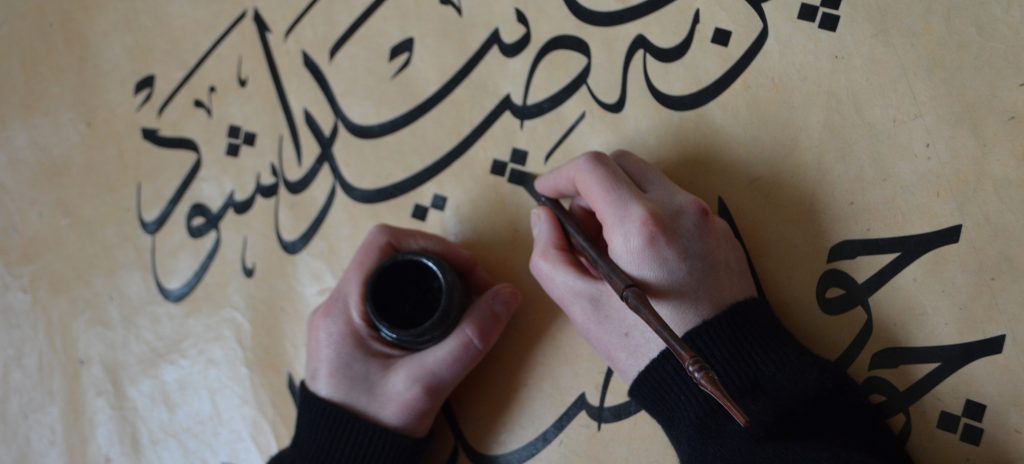
Photograph courtesy of Nuria Garcia Masip
International Workshop on Recreative Practices in the Art and Humanities
15 and 16 June 2022
Co-hosted by the School of Fashion & Textiles and the Photographic History Research Center, De Montfort University, Leicester (UK)
De Montfort University has a rich tradition of research in recreative practices across the arts and humanities with particular interests in dress history, photographic history and writing technologies. This intensive two-day workshop offers a much-needed forum for cross-disciplinary dialogue and inter-disciplinary experimentation in the area of recreative practices.
Recreative practice – the process of re-making an object – is widespread in the arts and humanities. Frequently employed in art, photography and design as a technique for retrieving haptic and tacit forms of knowledge and lost technologies, re-makes are also present throughout contemporary art and the museum world. Yet practices vary widely not only in their very appellation – recreative practice, reproduction, experimental archaeology, remaking, replication – but also in the nature and degree of their theoretical grounding. The fields of art history and curatorship, dress, and photography are particularly well-grounded theoretically and heavily engaged with questions of replication, copying and the simulacrum. In other disciplines, scholars rely on positivist materials science, yet other fields see living traditions embodied by contemporary craftspeople as critical mediators of past practice. In both cases, there are opportunities for greater criticism of the underlying assumptions these approaches entail and engagement with theoretical developments in other fields. Notwithstanding these many differences, a common set of questions and problems are readily apparent across media and disciplines. This workshop invited researchers in recreative practices to share their experiences and dialogue around these questions in a unique multi-disciplinary forum.
The workshop invited papers that explored:
- Practical investigative techniques and technologies
- The recuperation of haptic and tacit forms of knowledge through remaking
- The role of object and/or oral history and living memory in recreative practices
- The role of instructional texts/handbooks in recreative practice
- Recreation as a process within the practices of contemporary artists and makers
- The questions that practices of remake or replication (particularly of canonical works) raise for disciplines of curatorship, museology, and contemporary art practices
- Engagement with theoretical concepts of simulacra, copies, habitus, tacit knowledge, restoration practices or other relevant areas
- Recreative practices in the context of conservation science
- Remaking for re-enactment, stage and screen
- The relationship between re-creative practices and performativity
- The ethical responsibility of the artist/maker/curator as heirs or custodians of objects/artworks
- Concepts of originality and authenticity and the presumed value of the object/artwork
- Digital technologies of reproduction and their implications for authorship
- Simulation through digital technology, including immersive experiences
- The pedagogic function of re-making and replica objects, especially for research or technical instruction
- Re-making, re-enactments and replica objects in the context of museum interpretation and learning strategies
- The singular object vs the multiple. How does the replica challenge the status of the object?
- Histories of re-creative practices